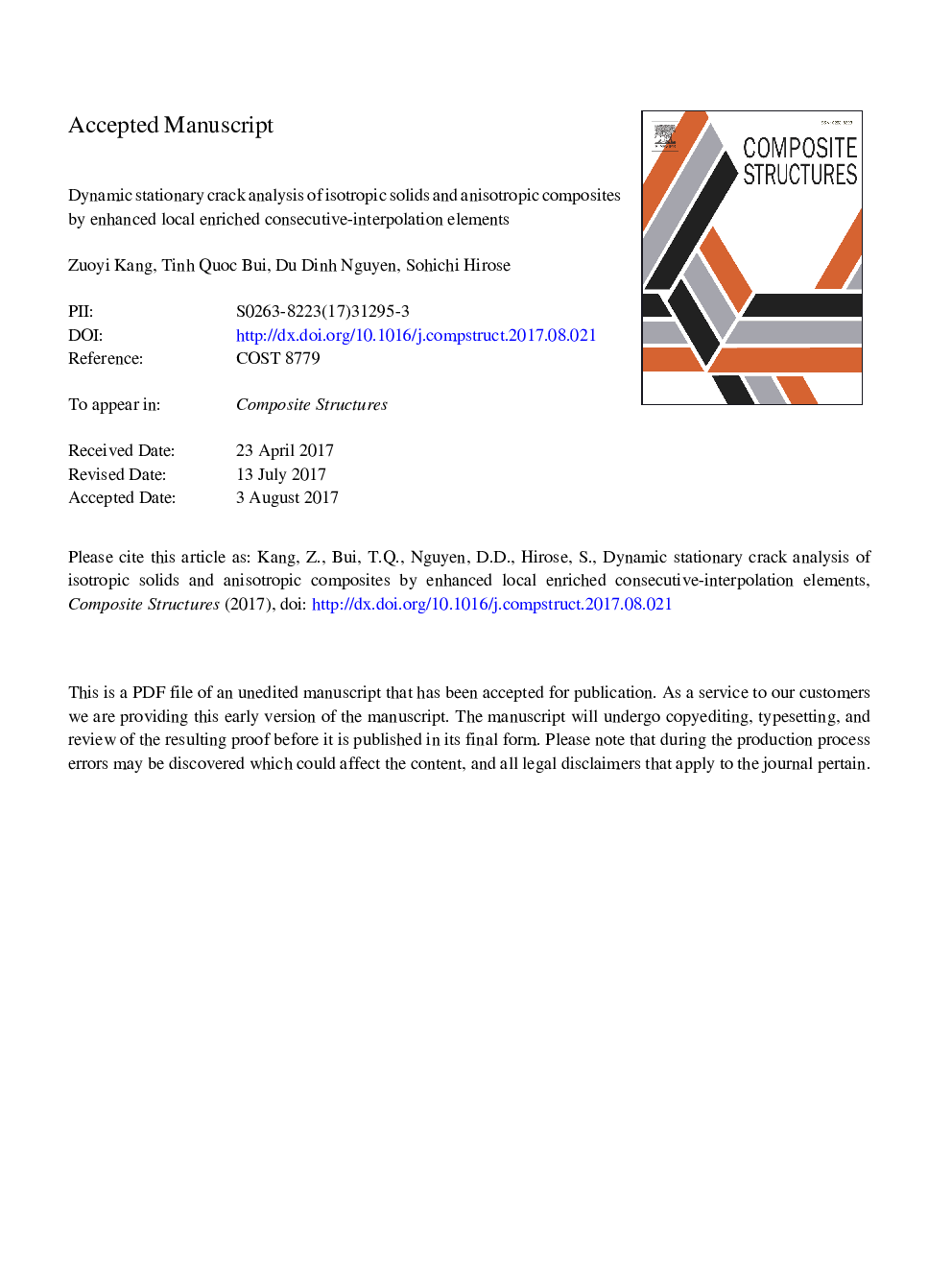| Article ID | Journal | Published Year | Pages | File Type |
|---|---|---|---|---|
| 4917637 | Composite Structures | 2017 | 36 Pages |
Abstract
The recently developed local enriched consecutive-interpolation 4-node quadrilateral element (XCQ4) is extended to study transient dynamic stress intensity factors (DSIFs) for isotropic solids and anisotropic composite materials containing stationary cracks. The XCQ4 involves both nodal values and averaged nodal gradients as interpolation conditions to smooth the distribution of unknown variables. The possible physical properties of enriched nodes in consecutive-interpolation procedure (CIP) would be thought as non-locality feature, which could improve the accuracy of results and eliminate the non-smooth stresses among inter-elements. In XCQ4, the crack is determined by level set function and enriched by Heaviside and crack-tip enrichment functions with special anisotropic enriched crack-tip functions. Time-dependent discrete equations for dynamic cracks are solved by Newmark time integration scheme at each time step without considering the effects of velocity-based global damping matrix. The proposed method is verified through a series of numerical examples of transient fracture in both isotropic and anisotropic materials. Numerical DSIFs are compared with reference solutions available in literature. The behavior of dynamic response is explored in specimens with complex configuration under step and sine loads.
Related Topics
Physical Sciences and Engineering
Engineering
Civil and Structural Engineering
Authors
Zuoyi Kang, Tinh Quoc Bui, Du Dinh Nguyen, Sohichi Hirose,
